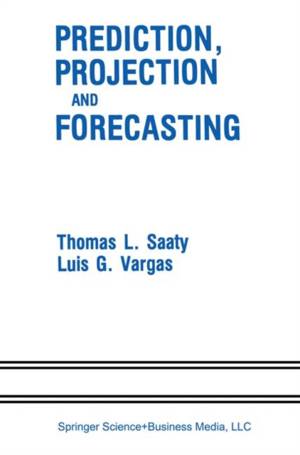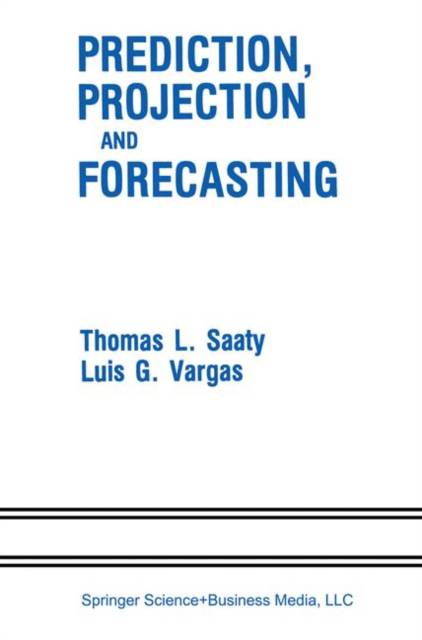
- Afhalen na 1 uur in een winkel met voorraad
- Gratis thuislevering in België vanaf € 30
- Ruim aanbod met 7 miljoen producten
- Afhalen na 1 uur in een winkel met voorraad
- Gratis thuislevering in België vanaf € 30
- Ruim aanbod met 7 miljoen producten
Prediction, Projection and Forecasting
Applications of the Analytic Hierarchy Process in Economics, Finance, Politics, Games and Sports
Thomas L Saaty, Luis G Vargas
Paperback | Engels
€ 132,95
+ 265 punten
Omschrijving
We predict when we say in advance, foretell, or prophesy what is likely to happen in the future. We project when we calculate the numerical value associated with a future event. We forecast, a special kind of prediction, on data of past happenings to generate or cast data for future by relying happenings. Generally, one predicts (yes, no) a war, an earthquake or the outcome of a chess match, projects the value of the GNP or of unemployment, and forecasts the weather and, more scientifically, the economic trends. Prediction, projection, and forecasting must be constrained in time and space: when and where. Often the accuracy of a forecast is of interest along with how sensitive the outcome is to changes in the factors involved. Is there a basis for improving the wisdom we need to make correct and useful predictions? We believe there is, and that it can be cultivated by studying the approach given here along with the various examples. To the best of our knowledge, no other work has approached prediction in the scientific framework of hierarchies. Prediction is the synthesis of past and present in an attempt to foretell the future. In our view, creation is not the ultimate phenomenon of the world. Nature creates forms and so do we. The problem is to surmise the eventual purpose, impact, and use of creation. It is the synthesis or outcome of bringing together the results of creation that we need to predict.
Specificaties
Betrokkenen
- Auteur(s):
- Uitgeverij:
Inhoud
- Aantal bladzijden:
- 254
- Taal:
- Engels
Eigenschappen
- Productcode (EAN):
- 9789401579544
- Verschijningsdatum:
- 16/12/2012
- Uitvoering:
- Paperback
- Formaat:
- Trade paperback (VS)
- Afmetingen:
- 156 mm x 234 mm
- Gewicht:
- 390 g

Alleen bij Standaard Boekhandel
+ 265 punten op je klantenkaart van Standaard Boekhandel
Beoordelingen
We publiceren alleen reviews die voldoen aan de voorwaarden voor reviews. Bekijk onze voorwaarden voor reviews.








